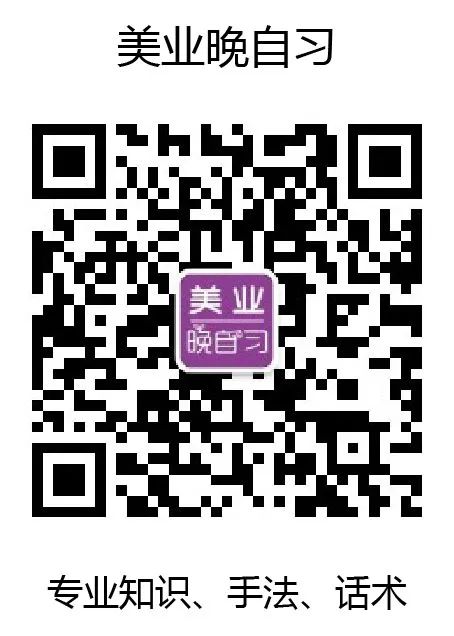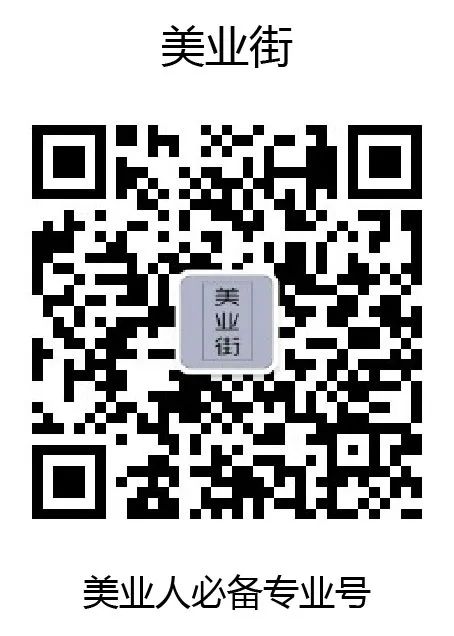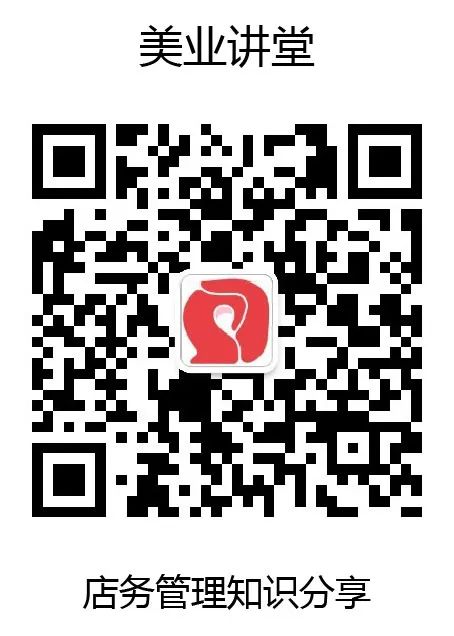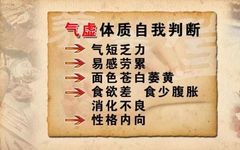 In Traditional Chinese Medicine (TCM), the concepts of Yin Deficiency (Yin Xu), Yang Deficiency (Yang Xu), Qi Deficiency (Qi Xu), and Blood Deficiency (Xue Xu) are frequently discussed.Many people perceive these conditions as intangible and difficult to identify, making it challenging to discern where their deficiencies lie.So, where exactly are your deficiencies?Today, we will teach you how to distinguish these “deficiencies”!How to Differentiate the Four Deficiencies
In Traditional Chinese Medicine (TCM), the concepts of Yin Deficiency (Yin Xu), Yang Deficiency (Yang Xu), Qi Deficiency (Qi Xu), and Blood Deficiency (Xue Xu) are frequently discussed.Many people perceive these conditions as intangible and difficult to identify, making it challenging to discern where their deficiencies lie.So, where exactly are your deficiencies?Today, we will teach you how to distinguish these “deficiencies”!How to Differentiate the Four Deficiencies

01
Yin Deficiency leads to internal heat, with typical manifestations including:Yin Deficiency leads to internal heat, with typical manifestations including five hearts heat (palms, soles, and chest), thirst with dry throat, preference for cold drinks, flushed complexion, insomnia with vivid dreams, night sweats, constipation, short and red urine, and a thin red tongue, among others.
02
Yang Deficiency leads to cold, with typical manifestations including:Yang Deficiency leads to cold, with typical manifestations including cold hands and feet, preference for hot drinks, weakness in the lower back and knees, hair loss, loose stools, clear and long urine, pale complexion, pale lips, a pale tongue with no coating, reluctance to speak or move, fatigue, and excessive sleepiness.Additionally, Yin Deficiency is not exclusive to women; men can also exhibit symptoms of Yin Deficiency.Similarly, Yang Deficiency is not exclusive to men; women can also show signs of Yang Deficiency.
03
Qi Deficiency results in weakness, with typical manifestations including:Qi Deficiency results in weakness,shortness of breath and low energy, fatigue, and a weak voice; shortness of breath upon exertion, easy sweating, dizziness, palpitations, pale yellow complexion, poor appetite, heat signs, and spontaneous sweating.Prolapse of the rectum, uterine prolapse, pale and swollen tongue with tooth marks, and functional decline may occur without disease; those with Qi Deficiency need to tonify Qi.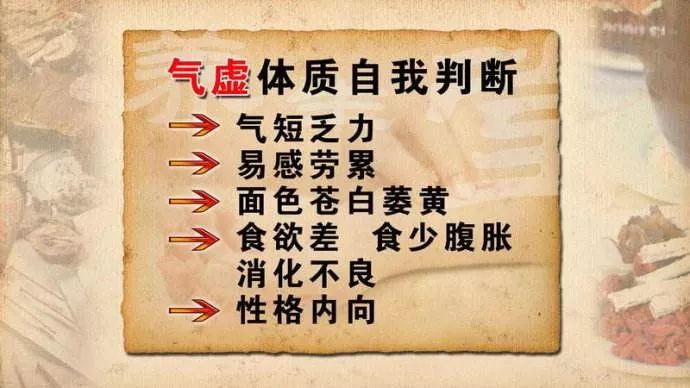
04
Blood Deficiency leads to dryness, with typical manifestations including:Blood Deficiency leads to dryness, dull complexion, pale lips, tongue, and nails, fatigue,dizziness, palpitations, insomnia, and forgetfulness, and weight loss.In summer, hands and feet may feel hot, while in winter they may feel cold; constipation, women may experience irregular menstrual cycles with light flow and pale color, pale tongue, and a smooth tongue with little moisture: for supplementation, it is advisable to useblood tonifying methods.How to Regulate the Body’s “Deficiencies”?

1. How to Regulate Yin Deficiency?
If you have health issues related to Yin Deficiency, you should consume more cooling and moistening foods, such as sesame, lily bulbs, honey, tofu, and pears.
Drink 1200ml of water daily, preferably boiled water, and limit cold drinks.
Ensure 7-8 hours of sleep each night, going to bed before 11 PM;try to remain calm and composed in stressful situations, and express negative emotions in a timely manner.
2. How to Regulate Yang Deficiency?
For Yang Deficiency, consume more warming and tonifying foods, such as pepper, lamb, ginger, leeks, and longan, and limit green tea and cold drinks.
Maintain a 20-minute afternoon nap;get plenty of sunlight for 15-20 minutes each time, preferably on your back, and keep your head, back, abdomen, and joints warm.
3. How to Regulate Qi Deficiency?
Individuals with Qi Deficiency should focus on dietary regulation, consuming more Qi tonifying, easily digestible, neutral, and sweet foods.
Those with Qi Deficiency may experience muscle weakness, fatigue, reluctance to exercise, and low immunity; moderate exercise is recommended.Practicing Tai Chi, walking, or jogging can be beneficial.
In terms of lifestyle, maintain regular habits, avoid wind and cold, and refrain from intense or prolonged exercise to prevent depleting vital Qi.
4. How to Regulate Blood Deficiency?
Change your dietary structure, avoiding foods that hinder blood replenishment, such as:cold drinks, fried foods, etc.Focus on food supplementation for blood replenishment.
Foods that Tonify Blood:Silkie chicken, black sesame, walnut meat, longan meat, chicken, pig’s blood, pig liver, brown sugar, red beans, etc., can be alternated regularly.
Foods to Avoid for Blood Deficiency:Water chestnut, garlic;Recommended Dishes:Angelica and cooked black-boned chicken, Huai yam and beef brisket stew, Huai chrysanthemum with fish, rose and Huai chrysanthemum drink;
Foods to Avoid or Limit:Seaweed, cardamom, lotus leaf, white liquor, mint, chrysanthemum, betel nut, raw radish, etc.
Engage in gentle exercises such as yoga, aerobics, or Tai Chi to promote blood circulation without excessively depleting Qi and blood.
Massage acupoints to tonify blood, gently pressing on the armpits, temples, and back of the head to promote smooth blood and Qi flow, achieving the effect of “nourishing Qi and invigorating blood”.
 Summary of the Symptoms of the Four Deficiencies: Yin Deficiency leads to heat, Yang Deficiency leads to cold, Blood Deficiency leads to dryness, and Qi Deficiency leads to weakness.To regulate the five organs, one should start by addressing the following four deficiencies:Yin Deficiency, Yang Deficiency, Qi Deficiency, and Blood Deficiency.1) Yin Deficiency corresponds to insufficient fluids and essence, leading to dryness and heat;2) Yang Deficiency corresponds to insufficient warmth, resulting in a feeling of cold.3) Qi Deficiency is akin to insufficient fuel in the body, leading to a lack of energy;4) Blood Deficiency signifies insufficient nourishment in the body, resulting in dryness and malnutrition;
Summary of the Symptoms of the Four Deficiencies: Yin Deficiency leads to heat, Yang Deficiency leads to cold, Blood Deficiency leads to dryness, and Qi Deficiency leads to weakness.To regulate the five organs, one should start by addressing the following four deficiencies:Yin Deficiency, Yang Deficiency, Qi Deficiency, and Blood Deficiency.1) Yin Deficiency corresponds to insufficient fluids and essence, leading to dryness and heat;2) Yang Deficiency corresponds to insufficient warmth, resulting in a feeling of cold.3) Qi Deficiency is akin to insufficient fuel in the body, leading to a lack of energy;4) Blood Deficiency signifies insufficient nourishment in the body, resulting in dryness and malnutrition;
Customer service WeChat ID: lishishi-1
MORE | More Knowledge
Enter keywords in our public account homepage to search for more knowledge:Dermatology, meridians, facial diagnosis, moxibustion, guasha, cupping, mud moxibustion, lymphatic, breast, cold uterus, dampness, hip therapy, liver and gallbladder, etc.
First scan the QR code, then press and hold